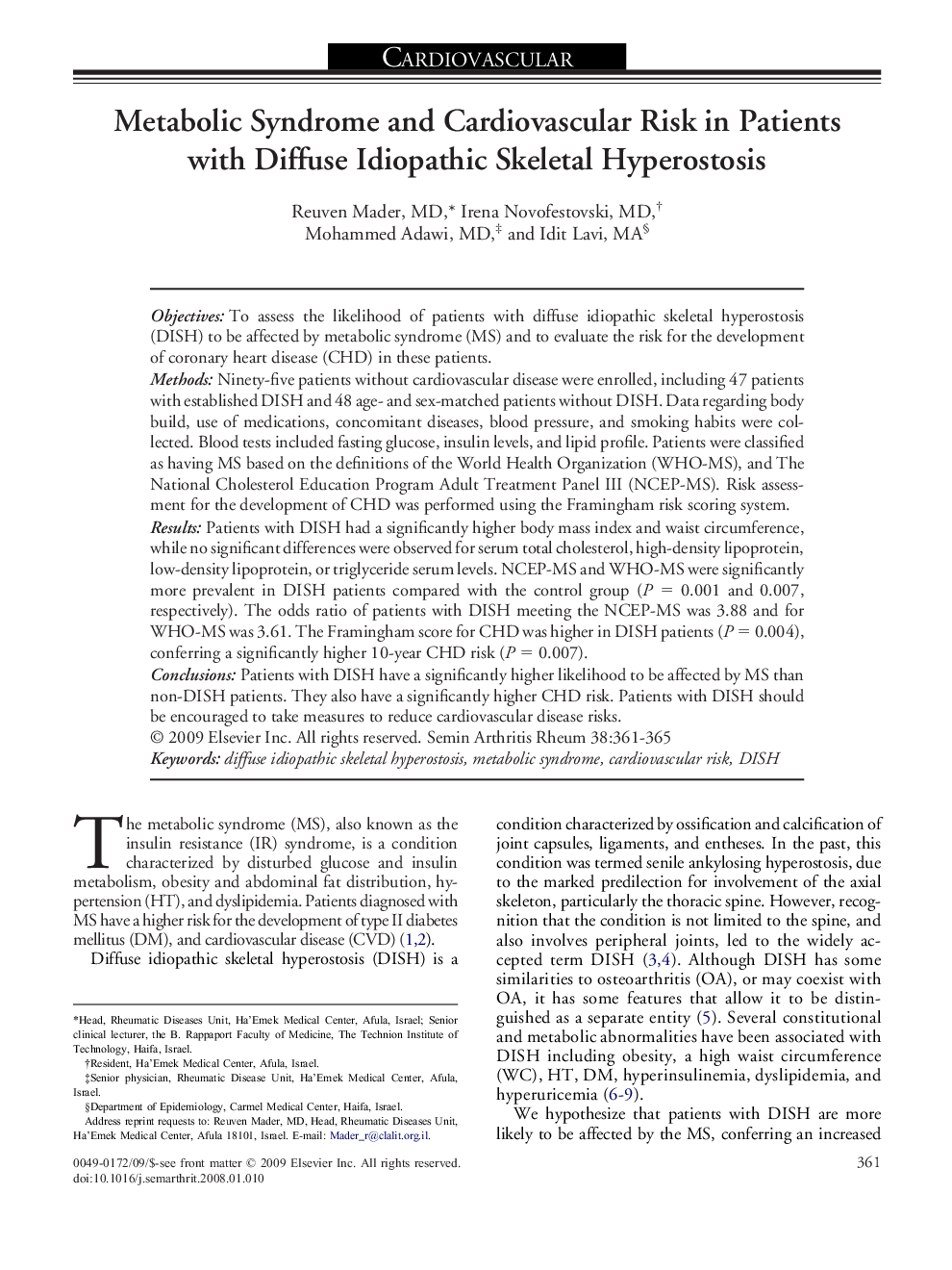| Article ID | Journal | Published Year | Pages | File Type |
|---|---|---|---|---|
| 2771721 | Seminars in Arthritis and Rheumatism | 2009 | 5 Pages |
ObjectivesTo assess the likelihood of patients with diffuse idiopathic skeletal hyperostosis (DISH) to be affected by metabolic syndrome (MS) and to evaluate the risk for the development of coronary heart disease (CHD) in these patients.MethodsNinety-five patients without cardiovascular disease were enrolled, including 47 patients with established DISH and 48 age- and sex-matched patients without DISH. Data regarding body build, use of medications, concomitant diseases, blood pressure, and smoking habits were collected. Blood tests included fasting glucose, insulin levels, and lipid profile. Patients were classified as having MS based on the definitions of the World Health Organization (WHO-MS), and The National Cholesterol Education Program Adult Treatment Panel III (NCEP-MS). Risk assessment for the development of CHD was performed using the Framingham risk scoring system.ResultsPatients with DISH had a significantly higher body mass index and waist circumference, while no significant differences were observed for serum total cholesterol, high-density lipoprotein, low-density lipoprotein, or triglyceride serum levels. NCEP-MS and WHO-MS were significantly more prevalent in DISH patients compared with the control group (P = 0.001 and 0.007, respectively). The odds ratio of patients with DISH meeting the NCEP-MS was 3.88 and for WHO-MS was 3.61. The Framingham score for CHD was higher in DISH patients (P = 0.004), conferring a significantly higher 10-year CHD risk (P = 0.007).ConclusionsPatients with DISH have a significantly higher likelihood to be affected by MS than non-DISH patients. They also have a significantly higher CHD risk. Patients with DISH should be encouraged to take measures to reduce cardiovascular disease risks.
